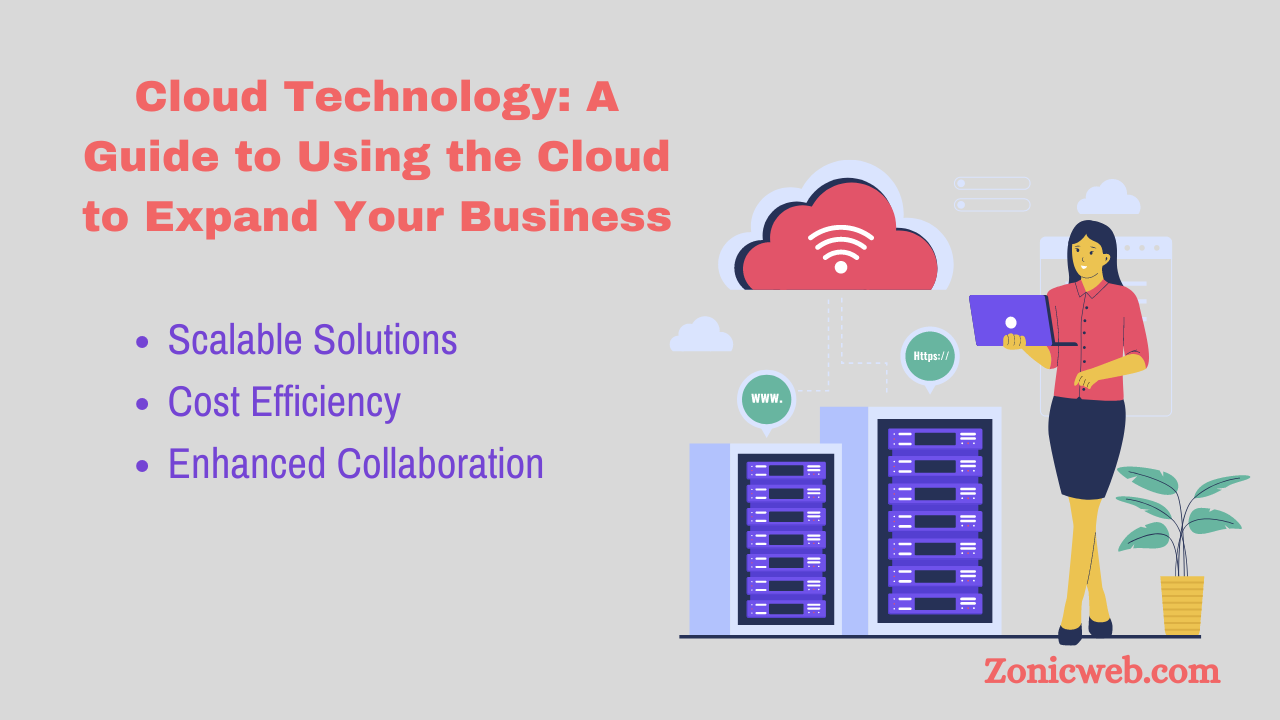Because it provides a solution that is adaptable and scalable, cloud computing has changed the way businesses operate and is driving innovation and efficiency. Numerous opportunities for transformation and growth open up as more and more businesses move to the cloud. This shift not just lessens the requirement for significant forthright interests in framework yet additionally empowers organizations to zero in on their center capabilities, upgrading their upper hand in a unique commercial center.
At its substance, distributed computing permits organizations to get to registering assets — like capacity, handling power, and programming — over the web, instead of depending on nearby servers or individual gadgets. This openness implies that groups can team up consistently from anyplace on the planet, working with remote work and working on in general efficiency. For organizations, this means more noteworthy deftness; they can rapidly increase assets or down in view of interest, answering business sector changes with striking velocity.
Cost effectiveness is one of the most important benefits of cloud computing. Budgets can be tight, especially for small and medium-sized businesses, when traditional IT infrastructure requires significant capital investment and ongoing maintenance costs. By using cloud administrations, organizations can take on a pay-more only as costs arise model, paying just for the assets they use. This adaptability permits associations to distribute their monetary assets all the more decisively, putting resources into development drives as opposed to foundation.
Also, distributed computing upgrades joint effort and correspondence. Apparatuses, for example, cloud-based project the executives stages, record sharing administrations, and correspondence applications permit groups to cooperate progressively, no matter what their actual area. Because diverse teams are able to more easily contribute ideas and solutions, this level of collaboration encourages innovation. Furthermore, cloud arrangements frequently come outfitted with worked in safety efforts, guaranteeing that delicate information is safeguarded in any event, when gotten to from a distance.
As far as information the executives, distributed computing offers organizations the capacity to store and dissect immense measures of data without the constraints of on-premises frameworks. This capacity is especially important in a period where information is a basic resource. Organizations can use progressed examination and AI apparatuses accessible in the cloud to get experiences from their information, illuminating dynamic cycles and recognizing new market open doors.
Security is still a major concern for many businesses considering moving to the cloud. Notwithstanding, legitimate cloud specialist organizations put vigorously in safety efforts, frequently unparalleled what numerous organizations can execute all alone. Data is protected from threats by encryption, access controls, and regular security updates. Moreover, cloud suppliers commonly offer catastrophe recuperation arrangements, guaranteeing that information can be reestablished rapidly in case of a break or blackout.
In spite of the various advantages, changing to the cloud isn’t without its difficulties. Organizations should cautiously evaluate their particular requirements and pick the right cloud model — be it public, private, or mixture — that lines up with their goals. Additionally, associations should address potential coordination issues with existing frameworks and guarantee that representatives are enough prepared to really use cloud advances.
To boost the benefits of distributed computing, organizations ought to take on an essential way to deal with their cloud process. This includes directing a careful investigation of their ongoing foundation, characterizing clear targets for cloud reception, and drawing in partners in the meantime. By focusing on joint effort and correspondence, associations can encourage a culture that embraces cloud advances, enabling groups to develop and drive development.
As distributed computing keeps on developing, arising advances like man-made consciousness, Web of Things (IoT), and edge figuring will additionally upgrade its capacities. The cloud can be used by businesses that stay ahead of these trends for more than just operational efficiency; it can also be used for transformative projects that position them for long-term success.
Taking everything into account, distributed computing presents an unrivaled chance for organizations to improve proficiency, diminish expenses, and drive advancement. By embracing this innovation, associations can open new degrees of coordinated effort and nimbleness, situating themselves for maintainable development in an undeniably aggressive scene. As organizations explore the intricacies of cloud reception, those that adopt a key and proactive strategy will be exceptional to bridle the maximum capacity of the cloud, guaranteeing they flourish in the computerized age.
